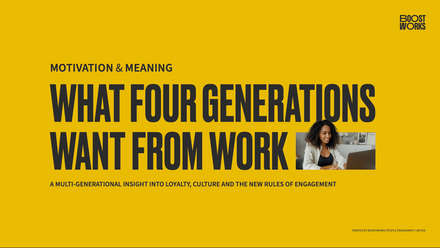Unilever employs everyday flexibility to create the new working norm
The people risk of not supporting working parents and carers was highlighted during REBA’s October 2024 webinar, Rethink parent and carer benefits to achieve talent, pay gap and productivity targets, with strategic partners Yurtle.
“We're living in a world of talent shortages. We have more older workers who need or want to work differently. We have fewer younger workers entering the workforce,” said Morag Lynagh, global future of work director at Unilever.
“And the reality is people don't come to work and leave the rest of their lives behind. “For us to attract, retain, engage a workforce, you have to meet people where they are.”
She argued that employers no longer have the luxury of thinking about people as being numbers in boxes or listed assets.
Employment is a mutually beneficial relationship.
Employers must acknowledge that people have big stuff going on in their lives, like having families, or caring for loved ones.
“So, for me, looking after our working parents, looking after our carers, isn't the fluffy stuff. We need people,” said Lynagh.
“We need people in the workforce and it's having those people in the workforce that allows us to deliver our business objectives.
To support people’s differing needs – not just those of carers and parents – Unilever has taken a different approach to flexibility.
“At Unilever we think about flexibility in several different ways and one of those is what we call everyday flexibility, so the ability to manage your working day – your working time – according to what else is going on in your life for you. And that is about trust,” said Lynagh.
Although some employers are concerned that people will take advantage of such a policy, this is not something she recognizes at Unilever.
“Actually, our experience is the opposite, that people value what we give them, and we get back in return. It is about a two-way kind of trusting give and take relationship,” she said.
She added that there might be the odd individual that you have to deal with, but that’s the exception.
“It's not about creating your policies and your processes around those kinds of exceptions. It's about what's the norm,” she added.
This is where the role of inclusion comes into play. As Lynagh highlights, inclusion is about creating a norm. People don’t want to stand out.
“One of the ways that you can address this is about talking about the issues,” she said. “It’s about helping people to see that they are seen, in what you do in terms of your policies, your benefits, your communications, you're acknowledging these groups.
“And what we found to be very helpful is storytelling.”
Lynagh recommends finding stories about people in your organisation who have responsibilities and detailing how you have supported them. Then communicate about these stories to the rest of the organisation.
She said it really helps people see that there are others like them in the organisation and that they can come for support and that support is there.
“For me, the sweet spot is around communication,” said Lynagh.
“It’s making sure people feel that they are valued, that we do want to support, and allowing them the space and the safety to talk to their line managers to let them know what's going on.
“But then let them lead about how much they want to talk about it and how much they want to say.
Be that backbone of support for them,” she said.







